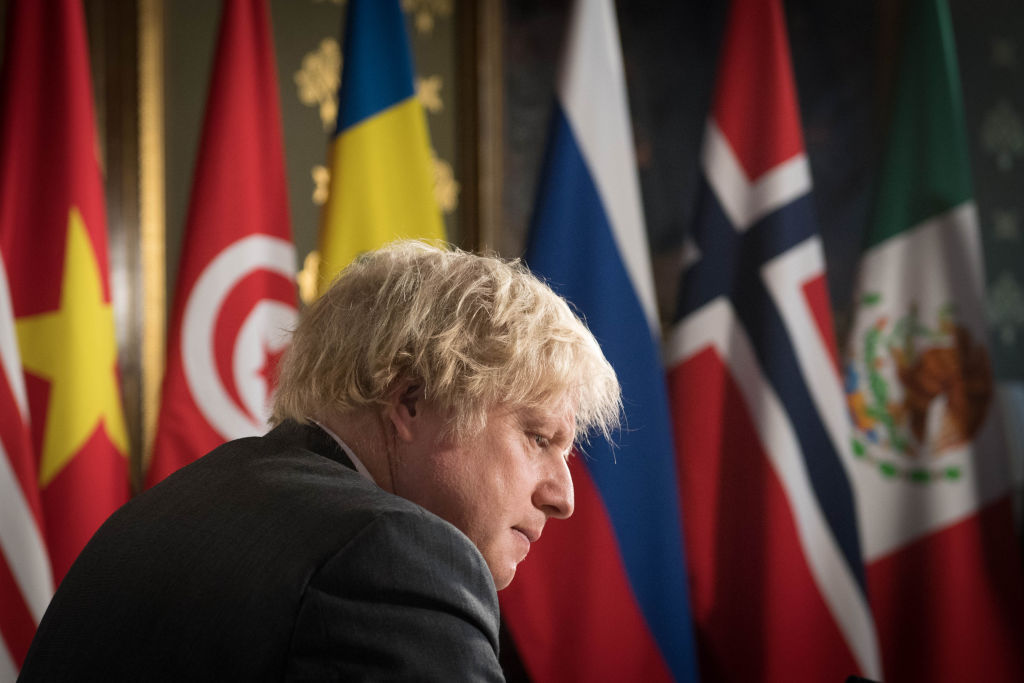Just what does ‘Global Britain’ actually mean? In the five years since the UK’s foreign policy was thrown into chaos after the EU Referendum, this question has reverberated without reply. In the publication of its Integrated Review of the UK’s Defence, Security, Development and Foreign Policy today, the UK Government has finally put its cards on the table.
‘Global Britain’ is no longer simply a slogan, but a roadmap underpinning a fundamental shift in our international ambitions. The Global Britain set out in the Review is a dynamic, forward-looking, tech-savvy nation, in which our domestic and international resilience is seen as one.
The phrase ‘Global Britain’ was conjured in those early, anxious months in the aftermath of the referendum, to allay fears among both the British people and our allies that our decision to part ways with the EU could signal a much broader retreat from the world stage. As the years dragged on, and British politics remained consumed in an internal parliamentary psychodrama, serious questions were raised about the genuine substance behind this clever slogan.
‘Global Britain’ is no longer simply a slogan, but a roadmap underpinning a fundamental shift in our international ambitions
Small signals were there. Even amidst the chaos of Donald Trump’s presidency, the UK and United States managed to push ahead with the introduction of a ‘Magnitsky Act’, levelling economic sanctions against senior officials responsible for human rights violations. Yet many of the hard choices remained unresolved – and geopolitics is what happens while you’re busy making other plans. The emergence of the global coronavirus pandemic, and growing awareness of the threats posed by China’s rise, forced a shift in gears.
There is no doubt the world we have emerged from following our departure from the European Union is fundamentally different to the landscape we faced when Britons went to the ballot box in 2016. The traditional liberal alliance has been strained, and many of the institutions that served as the architects of the post-war order seem ill-equipped to respond effectively to emerging threats. A new ‘hybrid’ kind of warfare has evolved, in which our democracy and society are part of the battleground. The last vestiges of naivety towards China’s ambitions have been stripped away, and Russia’s mastering of the digital realm of grey-zone tactics has emboldened its efforts to undermine the West.
Thankfully, Britain is well-placed to respond to this new framework of risks. The Review underscores that we will not be able to go head-to-head with some of our allies and adversaries in many aspects of traditional military hardware – but we are truly competitive in our technology, research and cyber capabilities. Britain is also exceptionally adept at designing frameworks for global governance, and setting standards and regulations to support open societies, underpinned by the rule of law. And despite a bumpy few years, British diplomacy and soft power is still considered to be a gold standard for positive influence operations.
Better capitalising and building on the existing strengths of British human capital, culture and expertise should serve as the bedrock of our new Global Britain era. But there are benefits to be gained outside of our strategic foreign policy objectives. As the Review makes clear, targeted investments in many of these areas, particularly better linking our world-class universities to new research clusters and commercialisation pathways, could help to spark regional economic growth where it is desperately needed. Global Britain and Levelling Up work can work hand in hand.
The Integrated Review and the choices we make as part of the Global Britain project will not please everyone. It is born out of a decision that has polarised the nation, with visceral force. And any decision to pivot towards the dynamic Indo-Pacific region will necessarily compel questions about the potential impacts on our leadership in securing our European neighbourhood.
Still, it is patently obvious that the challenges and opportunities of the global landscape that lies before us necessitate a new kind of creative, disruptive thinking. Britain is not alone in surveying the dynamic global environment with some degree of apprehension. Unlike many of our allies, however, we have already committed ourselves to embrace a project of domestic renewal – which we will carry through into our foreign policy.
Our friends and partners around the world will welcome this bold new commitment from the United Kingdom to promote global leadership, security and prosperity. The challenge now is to ensure the British people claim a stake in this vision and, after a bruising five years, come together around the idea of a common national interest. A strong and united Britain at home will hold a more powerful voice on the world stage.






Comments